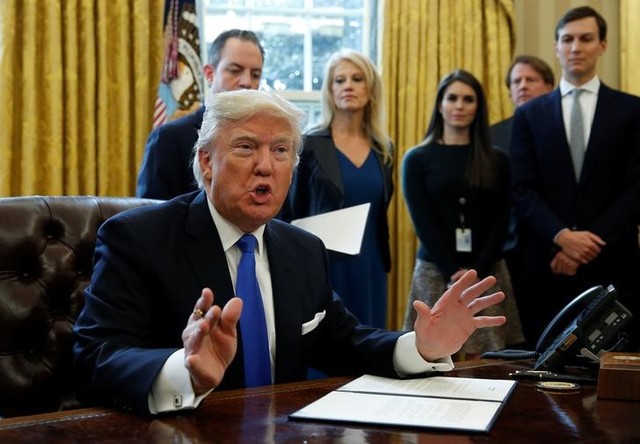Why Somalia did not escape the new Trump ban list


Failure by government to effectively and consistently cooperate and the threat of terrorism conspired to deny Somalia exit from the list of seven countries whose nationals have now been indefinitely denied access to the US.
In proclaiming the new travel ban Sunday, President Trump said Somalia satisfied the information sharing requirements but presented significant identity management deficiencies. The new travel ban which replaced the March ban set to expire Sunday noted although Somalia issues an electronic passport, the US and many other countries do not recognise it.
The threat of terror and inability of the government to command and control its territory were also singled out in the new travel ban which suspends entry of Somalis into the US indefinitely alongside six other countries.
“Somalia stands apart from other countries in the degree to which its government lacks command and control of its territory, which greatly limits the effectiveness of its national capabilities in a variety of respects. Terrorists use under-governed areas in northern, central, and southern Somalia as safe havens from which to plan, facilitate, and conduct their operations,” the new order reads in part.
Several Somalis were deported from the US in the wake of the March travel ban which was largely interpreted as a Muslim ban. Perhaps to cushion itself from criticism of religious discrimination, the Trump White House now included North Korea and Venezuela but added Chad which has a huge Muslim population.
The US also observed Somalia had a limited capacity to keep records and share information about its nationals who pose criminal or terrorist link. The order singled out Chad, Iran, Libya, North Korea, Syria, Venezuela, and Yemen as presenting “inadequate” identity-management protocols, information-sharing practices, and risk factors.
Somalia, the US said had made significant progress in federating its member states and fighting terrorism ‘but the government continues to struggle to provide the governance needed to limit terrorists’ freedom of movement, access to resources, and capacity to operate.’
“The restrictions and limitations imposed by this proclamation are, in my judgment, necessary to prevent the entry of those foreign nationals about whom the United States Government lacks sufficient information to assess the risks they pose to the United States,” Trump said.
“Additionally, visa adjudications for nationals of Somalia and decisions regarding their entry as nonimmigrants should be subject to additional scrutiny to determine if applicants are connected to terrorist organizations or otherwise pose a threat to the national security or public safety of the United States.”
The new order will be reviewed after every 180 days.